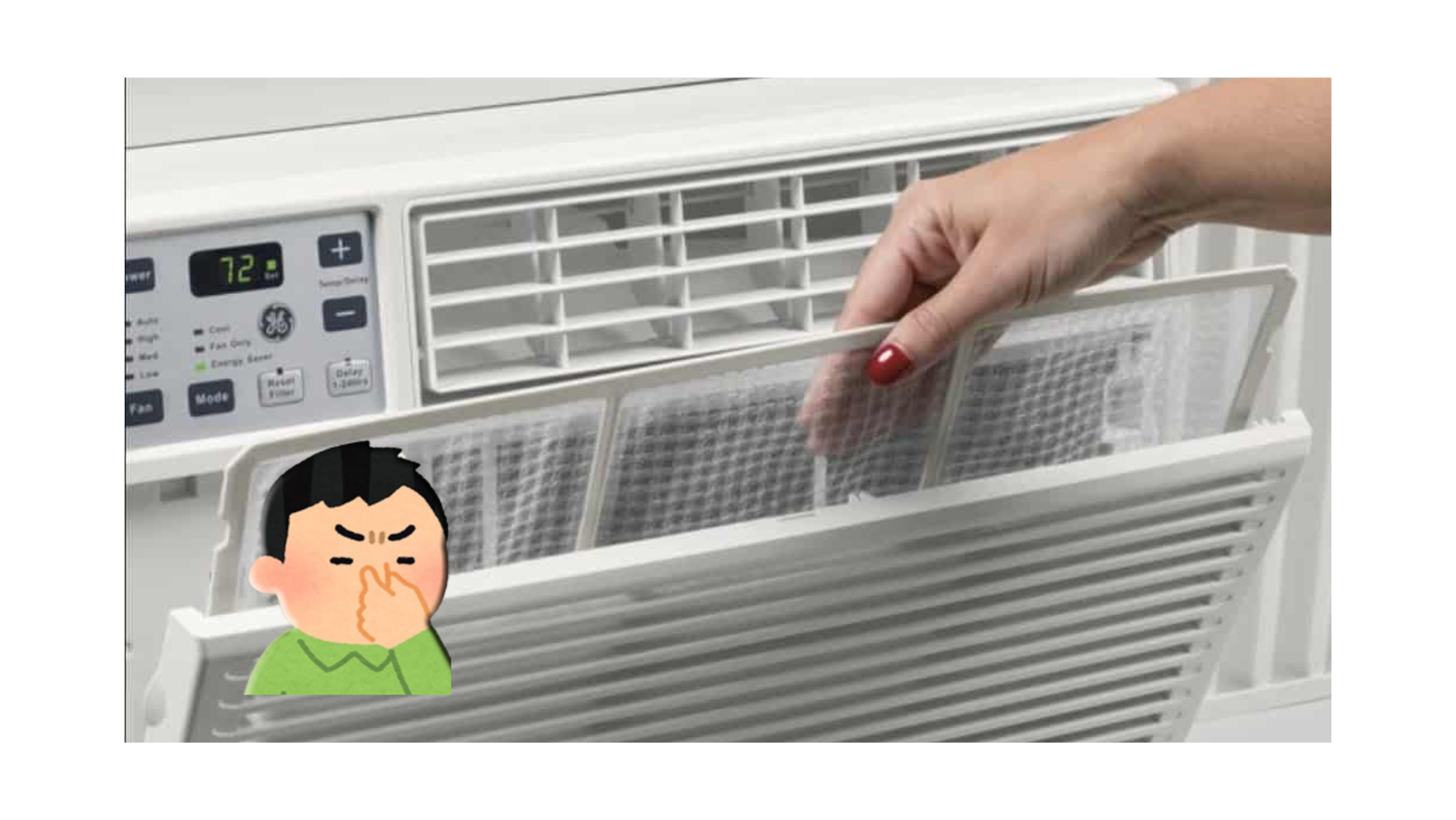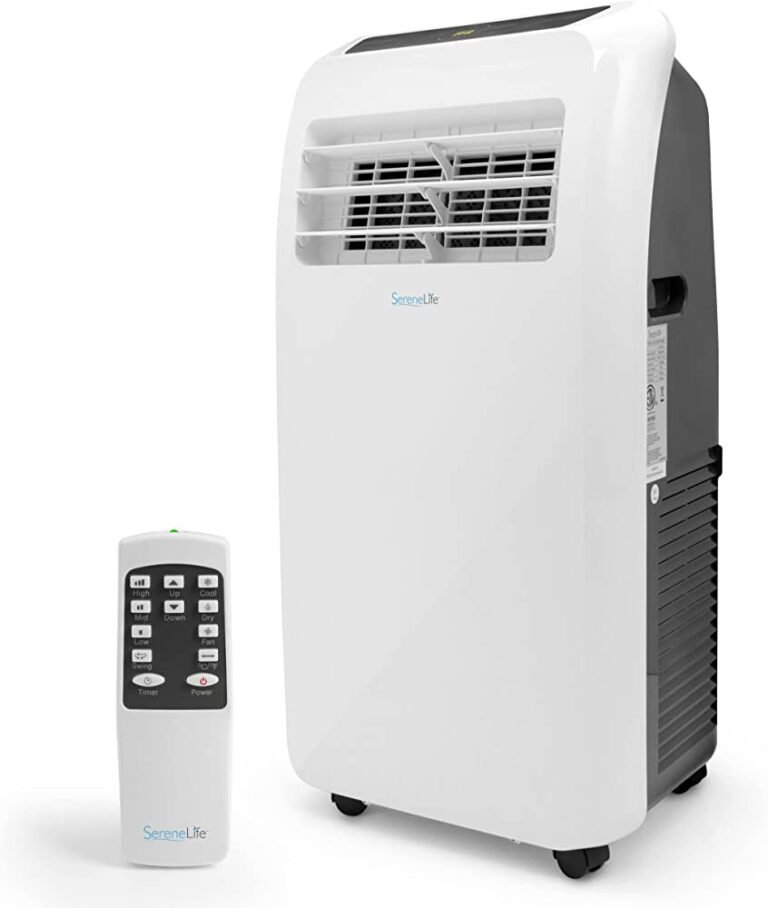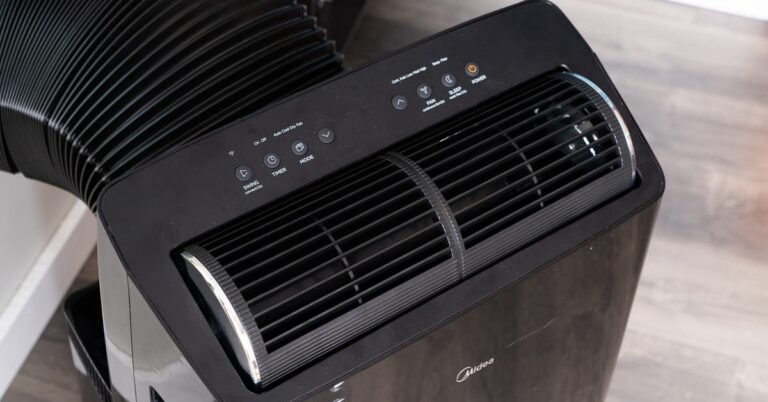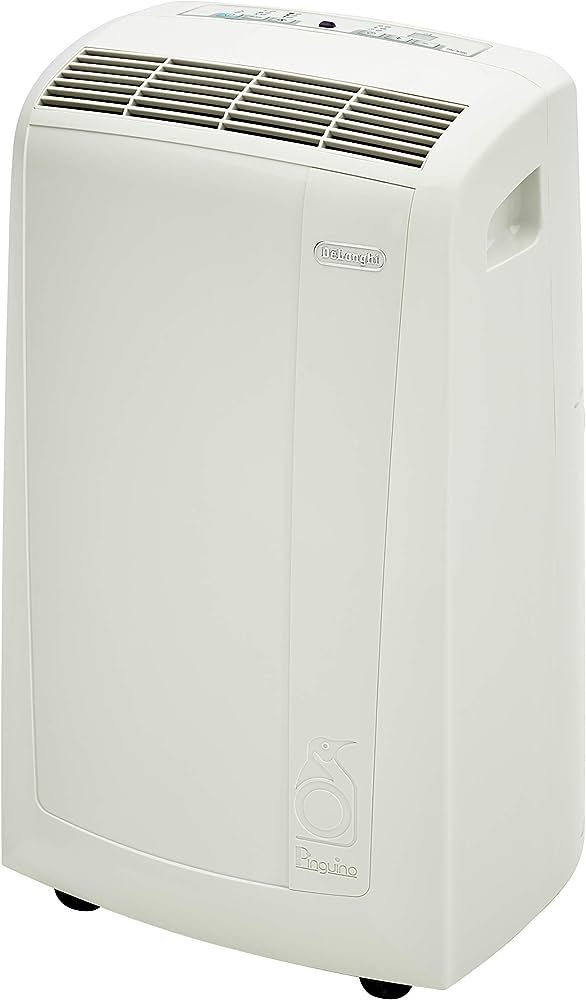Why Does My Portable AC Smell Bad? 3 Simple Solutions!
Your portable AC may smell bad due to accumulated dirt and bacteria in the air filter or a buildup of moisture in the unit. The odor is caused by the re-circulation of unclean air within the appliance.
To fix this issue, it is essential to regularly clean or replace the air filter and ensure proper drainage of condensation. Maintaining a clean and dry unit will help eliminate unpleasant smells and improve the overall air quality in your space.
Common Causes Of Bad Smell In Portable Ac Units
Bad smells in portable AC units can arise due to various causes. Mold and mildew growth, accumulation of dirt and debris, clogged filters, and stagnant water are some common culprits. Proper cleaning and maintenance can help get rid of the unpleasant odor and ensure optimal performance.
Mold and mildew buildup:
- Moisture, often present in portable AC units, can create an ideal environment for mold and mildew to grow. When this happens, you might notice a musty or earthy smell emanating from your unit.
Dampness in the unit:
- Excessive moisture inside the portable AC unit can lead to a foul odor. This can occur when condensation is not properly drained or when water accumulates in the unit. The presence of dampness can result in an unpleasant smell.
Lack of regular cleaning:
- Neglecting regular cleaning of your portable AC unit can contribute to a bad odor. When dust, dirt, and other contaminants accumulate over time, they can produce a stale or putrid smell that wafts through the air.
Clogged filters and vents:
- When filters become clogged with dirt, dust, and debris, it can impede proper airflow and cause unpleasant odors. Additionally, blocked vents can lead to stagnant air inside the unit, resulting in a foul smell.
Accumulation of dust and debris:
- Dust and debris can accumulate both on the exterior and interior components of your portable AC unit. Over time, this build-up can generate a foul odor, similar to a musty or dusty smell.
Restricted airflow:
- Insufficient airflow within the portable AC unit can cause stagnant air and encourage the growth of mold and bacteria. As a result, you may experience a bad smell emanating from the unit.
Chemical odors from the unit:
- Some portable AC units may emit chemical odors due to the use of certain materials or the presence of chemicals in the coolant. These odors can vary, ranging from a strong plastic-like smell to a chemical or metallic scent.
Off-gassing from new parts or materials:
- Newly purchased portable AC units may release off-gassing odors, especially from plastic components, adhesives, or paints. These odors typically dissipate over time, but initially, they can be unpleasant.
Leaking refrigerant:
- A refrigerant leak in a portable AC unit can produce a pungent and sweet-smelling odor. If you notice an unusual smell resembling chemicals or a sweet scent, it’s important to have the unit inspected and repaired by a professional.
Solution 1: Cleaning And Maintaining Your Portable Ac Unit
To eliminate the unpleasant smell in your portable AC unit, regular cleaning and maintenance are essential. This solution helps keep your unit fresh and odor-free, ensuring a comfortable and enjoyable atmosphere in your space.
Cleaning The Filters And Vents:
- Regularly cleaning the filters and vents of your portable AC unit is crucial to prevent bad odor. Here’s what you need to do:
- Use mild detergent and water:
- Mix a mild detergent with water in a bucket or sink.
- Take out the filters from your portable AC unit.
- Gently clean the filters by dipping them in the detergent-water solution.
- Rinse the filters thoroughly with clean water.
- Let the filters dry completely before placing them back into the unit.
- Removing mold and mildew:
- Mold and mildew can cause unpleasant odors in your portable AC.
- Inspect the vents and unit for any signs of mold or mildew.
- If you find any, mix equal parts of water and vinegar in a spray bottle.
- Spray the solution onto a clean cloth and wipe down the affected areas.
- Make sure to reach all the nooks and crannies where mold or mildew may have formed.
- Using specialized mold and mildew cleaners:
- In severe cases, regular cleaning methods might not be enough.
- Consider using specialized mold and mildew cleaners to eradicate the problem.
- Follow the instructions provided by the cleaner manufacturer.
- Be cautious and ensure proper ventilation when using these cleaners.
Preventing Future Buildup:
- Keeping the unit dry:
- Moisture can contribute to mold and mildew growth.
- After cleaning, make sure to thoroughly dry all components before reassembling.
- Check for any leaks or excess moisture around the unit and address them promptly.
- Regularly cleaning and maintaining the unit:
- Create a schedule to clean your portable AC unit regularly.
- Dust and debris can accumulate over time, leading to bad smells.
- Wipe down the exterior of the unit with a damp cloth to remove any dirt or grime.
- Check for any loose parts and tighten them if necessary.
–
- By following these cleaning and maintenance practices, you can eliminate bad odor from your portable AC unit and ensure its optimal performance.
- Remember, a clean and well-maintained unit not only prevents unpleasant smells but also helps improve the air quality in your space.
Solution 2: Improving Airflow And Reducing Odors
Improving the airflow and reducing odors of your portable AC is the solution to dealing with that unpleasant smell. By ensuring proper ventilation and regular cleaning, you can enjoy fresh and odor-free air in your space.
When your portable AC starts to emit a foul smell, it can quickly turn your cool oasis into an unpleasant environment. Luckily, there are several steps you can take to enhance the airflow and eliminate those unwanted odors. By following these simple solutions, you can ensure your portable AC is functioning optimally and keep the air in your space fresh and clean.
Clearing Blocked Vents And Filters:
- Ensure there are no obstructions blocking the vents or filters.
- Blocked vents and filters can restrict the airflow, leading to stagnant air and unpleasant odors.
- Regularly check and clean the vents and filters to remove any debris or buildup.
- Unblock the vents by gently using a brush or a cloth to wipe away accumulated dust and dirt.
Removing Obstructions:
- Take a look around the area surrounding your portable AC unit.
- Make sure there are no curtains, furniture, or other objects blocking the airflow.
- Obstructions can prevent proper ventilation and circulation, causing musty odors to linger.
- Rearrange any items that might hinder the airflow, allowing the unit to function efficiently.
Vacuuming Dust And Debris:
- Use a vacuum cleaner with a brush attachment to suck up any dust or debris that may have settled around the unit.
- Dust and debris can not only clog the vents and filters but also contribute to unpleasant smells.
- Regular vacuuming can help maintain a clean and odor-free portable AC.
Ensuring Proper Ventilation:
- Provide adequate ventilation in the room where your portable AC is operating.
- Good ventilation helps to circulate fresh air and expel any odors.
- Open windows or use fans to promote airflow and prevent stagnant air.
Positioning The Unit Correctly:
- Proper positioning of your portable AC is essential for optimal performance.
- Place the unit on a flat surface away from direct sunlight or heat sources.
- Avoid placing it near sources of moisture or damp areas, as this can contribute to mold and mildew growth and subsequent odors.
Clearing Space Around The Unit For Airflow:
- Create enough space around the portable AC for unrestricted airflow.
- Ensure there is at least two feet of clearance on all sides.
- Adequate space allows the unit to pull air in and expel it efficiently, reducing the chances of odors.
Using A Portable Air Purifier:
- Consider using a portable air purifier alongside your AC unit.
- Portable air purifiers help to trap and eliminate odors, allergens, and airborne particles.
- This combination will enhance the overall air quality in your space, leaving it fresh and clean.
Removing Particles And Odors From The Air:
- To eliminate lingering odors, consider using an activated carbon filter or an air purifier with a deodorizing feature.
- These devices can effectively capture and neutralize odor-causing particles in the air, leaving your space smelling fresh.
Enhancing Overall Air Quality:
- Apart from improving airflow and reducing odors, there are additional steps you can take to enhance the overall air quality.
- Keep your space clean and dust-free by regularly dusting surfaces, vacuuming carpets, and washing bedding.
- Use natural air fresheners, such as essential oils or baking soda, to add a pleasant scent to the room.
By implementing these solutions, you can effectively improve the airflow and reduce unpleasant odors in your portable AC. Remember to perform regular maintenance and keep the unit clean to ensure optimal performance. Enjoy cool, fresh air without any unwanted smells!

Credit: www.amazon.com
Solution 3: Addressing Chemical Odors
Address chemical odors with Solution 3 to eliminate bad smells from your portable AC. Stay refreshed and odor-free with this effective solution.
Portable air conditioners are a convenient solution for cooling smaller spaces, but they can sometimes emit unpleasant odors that can make your indoor environment less than ideal. If you’ve noticed a chemical smell coming from your portable AC, it’s essential to address the issue promptly to ensure your comfort and safety.
In this section, we’ll explore some solutions to help you identify the source of the odor and eliminate it effectively.
Identifying The Source Of The Odor:
- Check for any visible signs of leaks or damage in the unit.
- Inspect the air filters for dirt, debris, or mold growth.
- Examine the drain pan for stagnant water or mold buildup.
- Determine if the odor is present even when the AC is not running.
Checking For Refrigerant Leaks:
- Look for oily residue near the AC unit, which may indicate a refrigerant leak.
- If you suspect a leak, contact a professional technician immediately, as handling refrigerant can be hazardous.
Assessing The Condition Of Components And Materials:
- Inspect the evaporator coils for dirt, dust, or mold accumulation.
- Check the condenser coils for any debris or blockages.
- Examine the blower wheel and fan blades for dirt or damage.
- Inspect the exhaust hose for obstructions or disconnections.
Consulting A Professional Technician:
- If you are unsure about addressing the issue yourself, it is advisable to seek help from a professional HVAC technician.
- An experienced technician can diagnose the problem accurately and provide appropriate solutions.
Repairing Or Replacing Faulty Parts:
- If any components or materials are found to be damaged or malfunctioning, they may need to be repaired or replaced.
- Faulty parts can contribute to the development of odors in your portable AC.
Properly Recharging The Refrigerant:
- If your AC is low on refrigerant, it may need to be recharged by a qualified technician.
- Improper refrigerant levels can lead to performance issues and unpleasant odors.
Allowing The Unit To Ventilate And Air Out:
- If the chemical odor is persistent, try leaving the unit outdoors for several hours to allow it to air out.
- This can help dissipate any lingering smell within the internal components.
Opening Windows And Doors:
- To facilitate ventilation, open windows and doors when running the portable AC.
- This can help expel any odors and improve indoor air quality.
Running The Unit On Fan Mode Only:
- Switching the AC to fan mode without cooling can help circulate fresh air and reduce odors.
- This can be an effective temporary solution until the odor is eliminated.
Note: Depending on the severity of the odor, multiple solutions may be required to completely eliminate the bad smell. If the issue persists, it is recommended to contact a professional HVAC technician for further assistance. By addressing chemical odors in your portable AC, you can enjoy fresh and pleasant air while staying cool during hot days.
Frequently Asked Questions Of Why Does My Portable Ac Smell Bad
How Do I Stop My Portable Air Conditioner From Smelling?
Clean the air filters, use vinegar or bleach to kill mold and bacteria, and ensure proper ventilation.
Why Does My Portable Ac Smell Like Something Died?
Your portable AC may smell bad because of trapped moisture and mold in the unit.
Why Does My Portable Ac Smell Like A Skunk?
Your portable AC smells like a skunk due to bacteria or mold buildup in the unit.
How Often Should I Drain My Portable Air Conditioner?
You should drain your portable air conditioner regularly to prevent water buildup and maintain optimal performance.
Conclusion
To sum it up, a bad smell coming from your portable AC can be quite unpleasant and frustrating. However, by following the tips mentioned in this blog post, you can easily identify and resolve the issue causing the smell. Regular cleaning and maintenance of the unit, including the filter and vents, is crucial to prevent the buildup of dust, dirt, or mold that can lead to odors.
It’s also essential to ensure proper ventilation and airflow around the AC unit to eliminate stagnant air. If the problem persists after trying these solutions, it may be worth seeking professional help to inspect the unit for any underlying issues.
With a little bit of care and attention, you can enjoy the benefits of your portable AC without any nasty odors.







